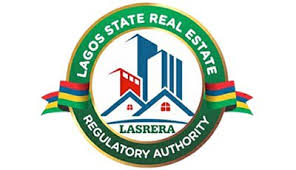Stakeholders have raised the alarm over the agency’s high fees required to register with the Lagos State Real Estate Regulatory Authority, which they perceived as overreach, and the creation of a dual regulatory structure that could undermine established professional bodies.
Chairman of the Board of Trustees of the Nigerian Institution of Estate Surveyors and Valuers, Austin Otegbulu, told PUNCH that it is abnormal and conflicting to have dual regulators.
“We cannot have two regulators. We have a lot of regulators. When there is a conflict, who do I obey? Because we are under the government’s law,” Otegbulu stated. “There are professional bodies who pay their dues every year to the Federal Government agency. It is wrong to have two regulators. It is abnormal.”
He also expressed strong disapproval of the N1m annual registration fee imposed by LASERA: “The emphasis should not be on the money but on the skill. The amount is too much. You will scare away skilled people who don’t have the money. Saying to pay N1m is like saying you’re out to make money. What about people who have the skill but not the money who will now be kept out?”
His sentiment was echoed by other real estate professionals who, while commending LASERA’s intent to sanitise the sector, also questioned the agency’s approach.
Chapter President of FIABCI Nigeria, Akin Opatola, voiced his concern over accessibility, warning that the new regulation risks excluding smaller players and honest professionals.
“I don’t know what it is [the registration fee]. But I also know that all fingers are not equal and the economy is also biting. It’s tough. But I think that there will be further consultations and stakeholder engagement to see how they can make the fees a little bit more friendly,” he said.
Opatola also drew attention to the reputational damage caused by unregulated players, urging LASERA to invest more in education and ethics enforcement rather than just regulatory control: “The bad eggs are giving us professionals a bad name. Now, the average barber, the average chef, the average vulcaniser, and everybody call themselves real estate agents. It shouldn’t be so.”
While the president of the Real Estate Developers Association of Nigeria, Akintoye Adeoye, acknowledged LASERA’s efforts in curbing quackery, he too called for a downward review of the fees.
“If they can bring it down, probably N500,000, maybe that will encourage more people to register with them,” he told our correspondent, noting that at “N1m per annum,” the cost could deter legitimate developers.
Adeoye commended LASERA for addressing the rising presence of unqualified practitioners in the real estate space.
“We have a good understanding of what LASERA is doing, which is regulation,” Adeoye stated. “The industry is actually full of quacks. And LASERA is doing a good job. Our members have been encouraged to also register with LASERA. So that LASERA, as one of the regulators, we strongly believe that it will minimise quackery in the sector.”
He further highlighted the agency’s proactive approach, saying, “LASERA also comes with discipline. And they also come with intervention. I remember two or three cases where LASERA has intervened, even in matters that involve our members.”
Adeoye praised the leadership, adding, “The current director of LASERA, she’s doing a good job. And also, the Commissioner for Housing—they are quite professional in their work. And we just encourage people to comply with their directives. And we will continue to partner with them to bring sanity and decorum to this sector.”
In June 2025, LASERA made it illegal to conduct any real estate business, whether brokerage, development, or agency, without a valid LASERA-issued registration certificate.
The directive was announced by the head of LASERA, Barakat Odunuga‑Bakare, and reinforced enforcement of compliance and imposed stricter controls, including a cap on agency fees and mandatory practitioner registration.
As part of this regulatory push, LASERA instituted a N1m annual registration fee, a move intended to professionalise the industry but which has since triggered debate over affordability.















